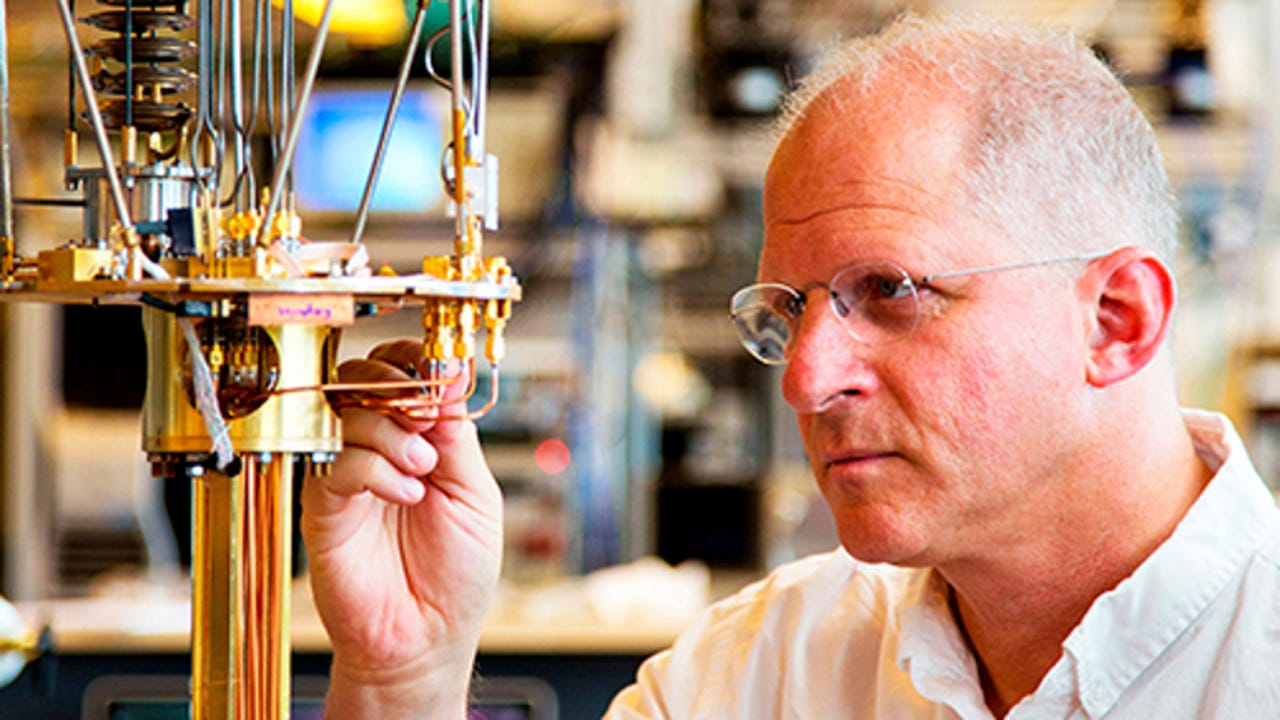Microsoft just upped its multi-million bet on quantum computing


The Nordic outpost of Microsoft's US-based quantum research lab, Station Q, will be headed by professor Charles Marcus, one of four scientists Microsoft hired last year. (Image: University of Copenhagen)
Microsoft has tipped several million dollars into a new quantum computing R&D lab at Copenhagen University, Denmark.
Microsoft has signed a multi-year deal with the university to collaborate on the development of a general-purpose quantum computer. Microsoft's staff will be working with the university's Niels Bohr Institute.
The institute is headed up by professor Charles Marcus, one of four scientists Microsoft hired last year to accelerate its bet that it can create a scalable quantum computer.
Marcus runs the institute's Center for Quantum Devices (QDev) and the partnership establishes the university as a Nordic outpost of Microsoft's US-based quantum research lab, Station Q. QDev will be home to Station Q Copenhagen, alongside Station Q labs at the University of Sydney, Purdue University, and Delft University.
Instead of conventional transistor's on or off state, represented by 1 and 0, a quantum computer's bits, called qubits, are based on quantum particles and can be both on and off at the same time. That characteristic offers the potential for far more powerful computers.
Microsoft is betting that topological quantum computing holds the key to creating a stable qubit. Topology, or the mathematical study of shapes and space, is gaining more attention among quantum computing researchers.
As noted in Nature, Microsoft's approach aims to encode qubits in a quasiparticle called 'non-abelian anyons' that emerge from interactions inside matter. It hopes to use their topological properties, which make qubits more stable, to create its general-purpose quantum computer.
According to Copenhagen University, Microsoft now has over a dozen employees located there and expects the team to grow as they work toward developing a topological quantum computer.
On top of the multi-million dollar investment, Microsoft has also agreed to "significant" quantum research funding at the university.
"The critical pillars for successful and productive quantum research already exist at the University of Copenhagen -- an aligned vision between Microsoft and the university, an exceptional team of top quantum researchers, a broad and deep pool of post doctorate and student talent, and a solid baseline of facilities and equipment dedicated to quantum research," said David Pritchard, chief of staff for the Artificial Intelligence and Research division at Microsoft.
PREVIOUS AND RELATED COVERAGE
Report: Google takes steps to commercialize quantum computing
Microsoft's next big bet? Clue: it's just hired four top quantum computing scientists
Microsoft says it's doubling down on quantum computing after nabbing four top scientists who will work with a Microsoft hardware veteran to turn research into reality.